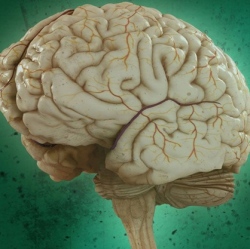
A team of researchers from across the globe believe they have discovered a means of re-opening “critical periods” in brain development, allowing adults to acquire abilities; such as perfect pitch or fluency in language, that could previously only be acquired early in life.
According to the study in Frontiers in Systems Neuroscience, the mood-stabilizing drug valproate allows the adult brain to absorb new information as effortlessly as it did during critical windows in childhood.
A critical period is “a fixed window of time, usually early in an organism’s lifespan, during which experience has lasting effects on the development of brain function and behavior.” They are, for example, what allows children to enter into language without any formal training in grammar or vocabulary.
The researchers postulated that because such periods close when enzymes “impose ‘brakes’ on neuroplasticity,” a drug that blocks the productions of those enzymes might be able to “reopen critical-period neuroplasticity.”
Takao Hensch, a molecular biologist at Harvard, told NPR about the experiment in which the enzyme-inhibitor valproate was administered to adult males with no musical training as they attempted to acquire absolute or “perfect” pitch. They used absolute pitch as a means of measuring plasticity because “there are no known cases of an adult successfully acquiring it.”
The men, half of whom took valproate, the other half a placebo, performed online tasks to train their ears to recognize tone.
“Given the difficulty of improving [absolute pitch] performance in adulthood,” the researchers wrote, “we hypothesize that in our task, even a small advantage in pitch class identification in [the valproate group] as compared to the placebo group is suggestive of the reopening of plasticity, as musically naïve participants were trained for a relatively short time period on several pitch classes, conditions under which no existing study has shown any improvement in [absolute pitch].”
The results were that those who took the valproate scored much higher on pitch tests than those who underwent similar training but only took the placebo.
